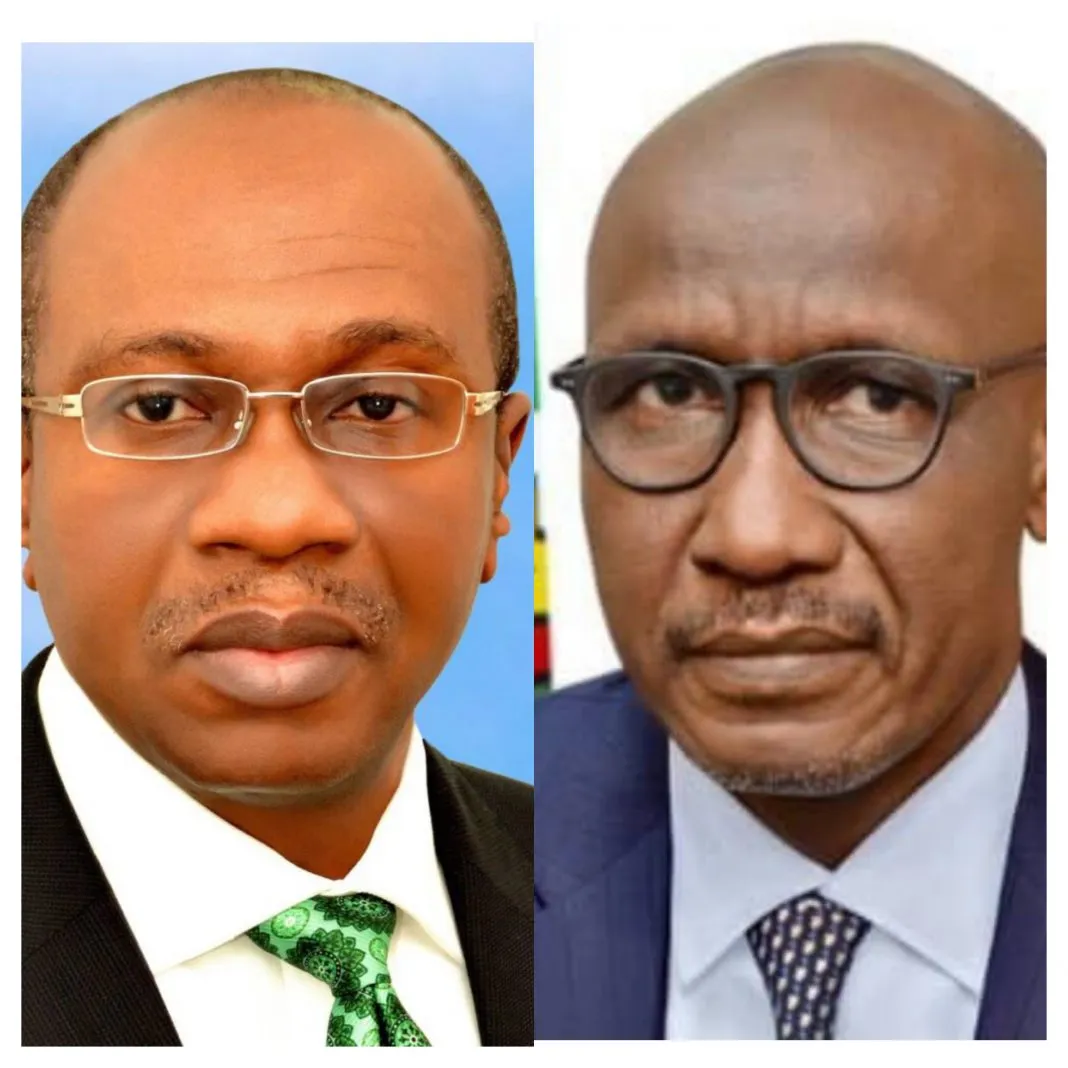The presidency has waded into the controversy raging between the Central Bank of Nigeria (CBN) and the Nigeria National Petroleum Corporation Limited (NNPC) over the dwindling fortune of the naira, Daily Trust gathered from reliable sources yesterday.
The CBN on Friday blamed the non-remittance of dollars to foreign reserves by NNPC as the reason for the plunge of the naira in the official and parallel markets.
- 2023: It’s illegal to buy dollars with naira for election campaigns — CBN
- Emefiele’s agony on Nigeria’s cheap dollar subsidy for rich and lazy
At the time of the allegation, the naira traded for N700/$1 at the parallel market and N415.96/$1 at the official market.
But in what could be seen as contradicting the CBN claim, a document from the NNPC on Sunday showed that the company remitted a total of $2.7bn into its accounts with the CBN from January to June this year.
Financial experts and some Nigerians were taken aback at the counterclaims by the federal government institutions with some of them describing the development as “an embarrassment” to the country.
‘Controversy being resolved’
Although the spokesman for the CBN, Mr Osita Nwanisobi, was not immediately available for comments, some top officials of the apex bank said the presidency had waded into the matter.
One of them said, “As we speak, there is a meeting over this issue at the presidency to resolve the anomaly because the report that they (NNPC) remitted $2.7bn to the federation is misconceived as money to the government.
“The fund they remitted is not oil imports,” he said.
According to him, “The money they remitted was not even up to the forex they require for the importation of white products and that was why they sought augmentation to meet the threshold.”
Another official said it was normal for the NNPC to have operational accounts with the CBN but that remittances into the FAAC were halted by NNPC Ltd for several months as it has been using the fund for the importation of petrol at a subsidised rate.
Daily Trust could not establish the identities of the people in the presidency discussing with leaders of the two establishments but it was learnt that “There was no big deal in the two versions of the story.”
A source said, “Both the CBN and the NNPC are meant to serve the public and we have a big problem at hand: the dwindling fortunes of the naira and the high cost of importing fuel for domestic consumption.
“While the CBN desperately needs the US dollar to stabilise the economy, the NNPC is equally battling hard to ensure that there is no relapse in fuel supply in the country. The two of them don’t want to be found wanting.
“But, of course, you know that failure has no father and this is basically why they are trying to shift the blame. Gladly, with the intervention of the presidency, the controversy will soon fizzle out,” he said.
Daily Trust found that so far, the NNPC had spent N1.1 trillion this year on petrol subsidy just as the government budgeted N4trn to cover petrol subsidy for the 2022 fiscal year ending May 2023.
Despite that, the agency had remitted some funds as explained by officials.
The remittance process
One of the CBN officials explained the remittance process that is generating controversy. The management official said: “What they (NNPC) sent so far in seven months this year is $1.6 million.
“CBN had to guarantee to give them additional funds so they can have enough forex for their imports.”
Further enquiries by this newspaper to top officials of CBN, NNPC Ltd and other agencies indicated that the remittance by the national oil company was funds meant for operations and not as accrued revenues to the government.
Before now, NNPC, a national oil corporation does business and remits oil sales proceeds to the Consolidated Revenue Fund (CRF), which is part of the funds shared monthly by the Federation Accounts Allocation Committee (FAAC) to the federal, state and local governments.
However, since January, there has been no known contribution from the NNPC Ltd to the FAAC funds according to the monthly FAAC data report and official pronouncements.
How the controversy started
The CBN Governor, Godwin Emefiele was summoned by the Senate last week over the rate at which the naira was crashing. This followed the adoption of a motion by Senator Olubunmi Adetunmbi (APC, Ekiti North).
Contributing to the debate, Senator Sani Musa (Niger East), said the naira would appreciate if Nigerians consume what they produce.
Senator Biodun Olujimi (Ekiti South) said, “The time has come for us to look holistically into what is happening. What is happening to the dollar is a replica of what is happening to Nigeria,” she said.
The Senate thereafter asked the CBN to stop the rapid decline of the value of the naira.
It was after the resolution of the Senate that the CBN governor brought in the NNPC angle to the matter.
While the CBN said there had been a “zero-dollar” remittance to the country’s foreign reserve by the NNPC Ltd, the report attributed to the NNPC payment document at the weekend stated that the corporation had remitted $2.7 billion into its accounts with the CBN from January to June this year, which could strengthen the naira.
According to the document, $645 million was for dividends paid by the Nigerian Liquefied Natural Gas Company Ltd, while $1.786bn was from the NNPC operational activities.
A breakdown of the NNPC remittances showed that funds into the NNPC accounts included; $18,770,418.97 paid into its account with CBN in January; $194,563,276.49 paid in February and $373,232,875.20 paid in March 2022. In April, NNPC Ltd paid $247,884,295.52; paid $591,565,425.41 in May and $880,906,761.81 in June.
When contacted to explain what is happening, the Group General Manager, Group Public Affairs Division at NNPC Ltd, Garbadeen Mohammed, confirmed the payment to this paper but stated that he does not know the exact amount and also said the payment was made to the NNPC account with the CBN.
This indicates that the payment was not a cash inflow to the federal account or to FAAC which is shared by the three tiers of government.
“I cannot confirm the exact figure but it is true that NNPC Ltd has remitted over two billion dollars into NNPC’s accounts with the CBN in the last six months,” he said.
Data from FAAC showed that NNPC ought to remit N122.7bn every month to FAAC this year from its trade and so far, it has not remitted for six months.
During a side-line interview a fortnight ago at the unveiling of the commercialised NNPC Ltd by President Muhammadu Buhari, the Group CEO of NNPC Ltd, Mele Kyari, said: “We are now a private company. Will MTN go to FAAC? We will pay our taxes; we will pay our royalties and we will deliver dividends to our shareholders.”
On the arrears before the July 19 transition, the GCEO said, “Which arrears? That was the Nigerian National Petroleum Corporation.”
Finance minister mum
When contacted for clarification on the $2.7bn NNPC payments by NNPC and why it did not reflect in the June FAAC report, the Minister of Finance, Budget and National Planning, Mrs Zainab Ahmed, did not respond to a text message sent to her mobile line and WhatsApp.
However, at the public consultation on the 2023 – 2025 Medium Term Expenditure Framework and Fiscal Strategic Paper (MTEF and FSP) in Abuja recently, she explained why the NNPC stopped remittances to FAAC.
She had said, “The new arrangement (is that) NNPC will not be contributing to FAAC on a monthly basis, but NNPC will still be paying taxes, royalties and dividends.
“But let me also say that prior to the NNPC transiting, for about eight months we have not been receiving any revenues. Why are we not receiving any revenues from the NNPC? (It is) because the NNPC has been instructed to cover the cost of fuel subsidy on behalf of the federation.”
By Simon E. Sunday, Sunday M. Ogwu & Chris Agabi

 Join Daily Trust WhatsApp Community For Quick Access To News and Happenings Around You.
Join Daily Trust WhatsApp Community For Quick Access To News and Happenings Around You.


